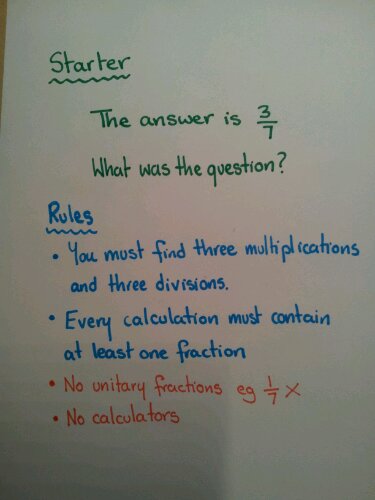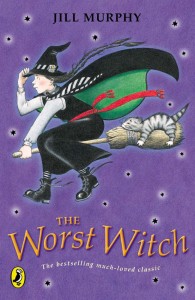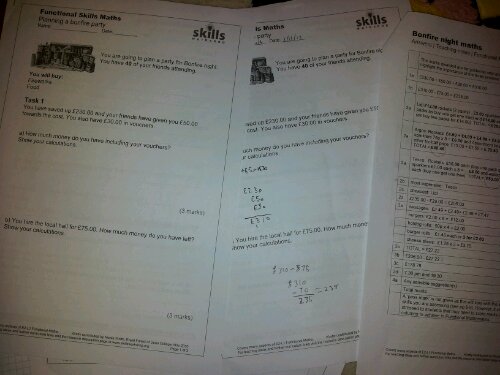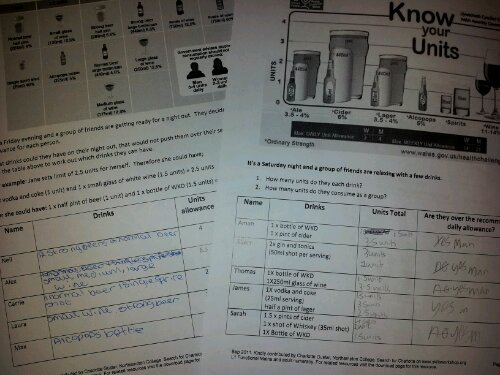I’ve become increasingly interested in an inquiry based approach to learning maths after completing the ‘How to Learn Maths’ course.
Today I tried out a more problem-based approach with a Year 9 class. Last lesson we had recapped prior learning of equivalent fractions, simplifying and multiplying fractions. We had looked at using reciprocals in division. The starter today could easily have been 5 minutes with mini-whiteboards, but instead I gave them to following problem:

There is no ‘one correct answer’. The only limit was their mathematical imagination. After about twenty minutes we discussed each other’s answers on the board. If an answer was wrong, it was considered and corrected – rather than being dismissed or ignored. Walking around the room I was amazed – the level of engagement had increased and pupils were explaining their ideas. I could get a feel for who understood and who just followed procedures (and came unstuck when asked to do something different).
Of course, some pupils said ‘I can’t do it!’. They were met with the sympathetic response of ‘Can’t do it, doesn’t work anymore. Challenge is good for you’. Surprisingly, they either got on with it, started working with a friend or asked for pointers on how to start the problem.
I was really impressed with the students’ reaction to the task and by what I learnt about their understanding. Why not try it yourself on your next topic?
Like this:
Like Loading...





